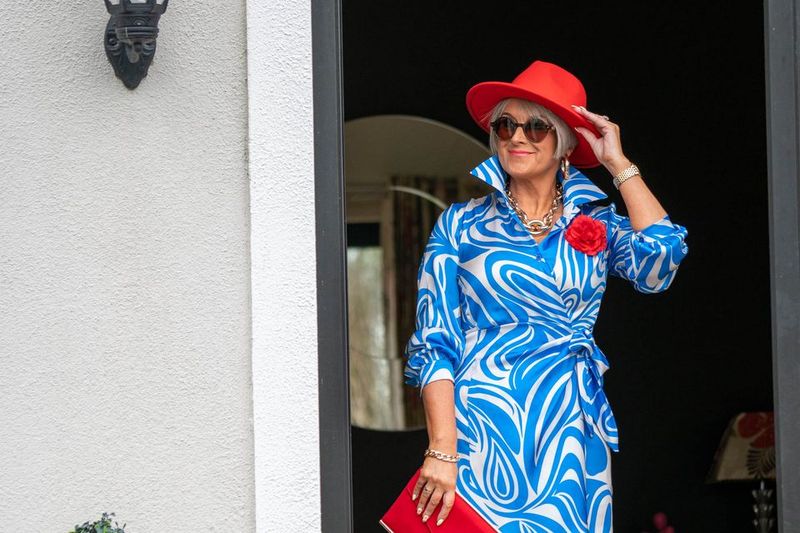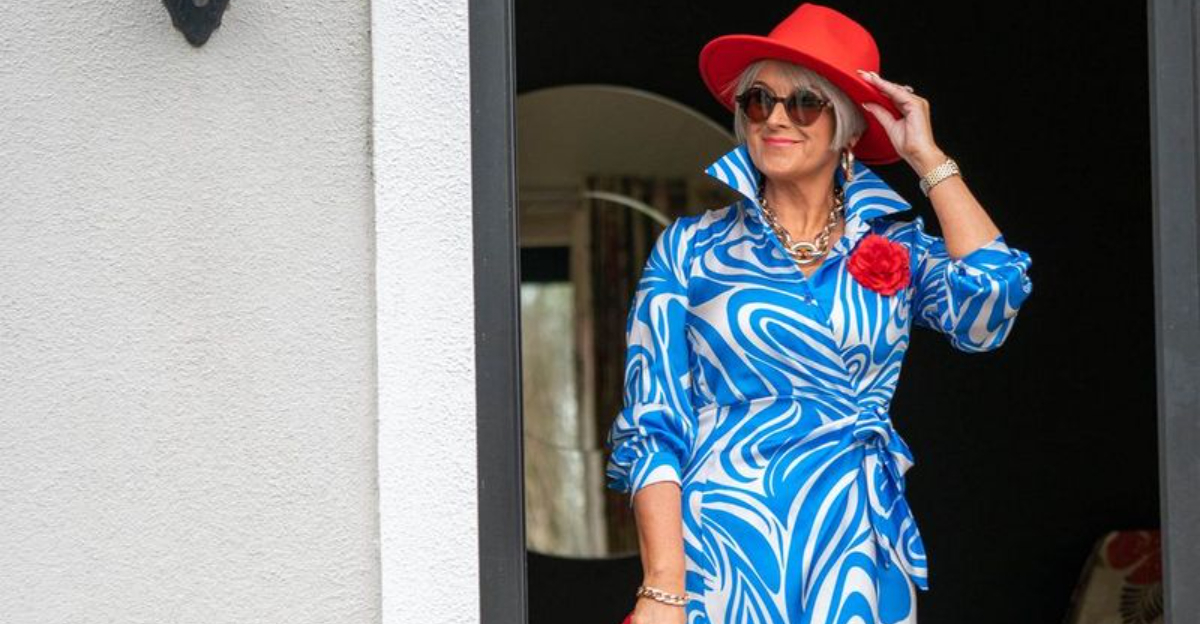Avoid Saying These 16 Things To Someone, They Sound Nice But Feel Offensive
Let’s be honest: sometimes the stuff people say to “make things better” just stings harder. You know that empty, slightly awkward feeling when someone drops a polite bomb and expects gratitude? I’ve been there.
It’s like they mean well—at least, that’s what you tell yourself. But those words settle in, heavy and confusing, and you’re left questioning if you’re just too sensitive or if they’re missing the point entirely.
This isn’t about shaming anyone or making you paranoid about every word that leaves your mouth. It’s about seeing the impact—even when intentions are good. If you’ve ever walked away from a conversation feeling invisible or low-key insulted, you’re not imagining it.
Here are 16 phrases that sound nice, but can cut deep. (You might recognize a few that slipped out of your own mouth, too. No judgment. We’re all learning.)
1. “No offense, but…”

Ever had someone say, “No offense, but…” and brace yourself? That’s not just you. This phrase is like an emotional warning sign, almost guaranteeing the next words will sting. It puts you on edge, waiting for the blow.
Here’s the thing: tacking on “no offense” doesn’t neutralize what follows—it actually makes it worse. It’s as if they know they’re crossing a line but want a free pass. You start questioning your own reaction: Is it really that bad? Am I too sensitive?
Every time I heard this at work, it felt like emotional whiplash. It was a heads-up, but not the good kind. It’s a phrase that says, “I’m about to be rude, but please don’t call me out.” Next time, honesty without the warning label feels a lot more real—and a lot less like a setup.
2. “You’re so brave for wearing that.”

One time, I wore a dress that made me feel unstoppable—and someone hit me with, “You’re so brave for wearing that.” Suddenly, my confidence wobbled. Brave? I thought I just looked good.
This phrase might sound like a cheer, but it’s a sideways glance at what you’re wearing. It implies your choice is out of the ordinary, maybe even risky. You end up wondering if people are focused on you for all the wrong reasons.
What we wear isn’t supposed to require bravery. When someone labels your clothing as “brave,” it can feel like you’re being put on display. A real compliment? “You look amazing.” Trust me, it lands a lot softer.
3. “You look great for your age.”

If you ever caught yourself flinching at, “You look great for your age,” you’re not alone. That sentence carries a strange kind of praise—like there’s something surprising about looking good once you hit a certain number.
The compliment tries to be generous, but it hooks onto the idea that age is a problem to solve. Suddenly, you’re not just being seen—you’re being measured. It’s not about feeling beautiful; it’s about outperforming expectations that shouldn’t exist.
Here’s a thought: beauty doesn’t come with an expiration date. Next time, lose the qualifier. “You look great” says what you mean, without the unspoken asterisk.
4. “I’m sorry you feel that way.”

You know that moment someone says, “I’m sorry you feel that way,” and the air chills just a little? It’s not an apology—it’s a sidestep. Instead of caring about what you experienced, they push the problem back on you.
It can leave you wondering if your feelings even matter. Every time I heard it from someone I trusted, I felt smaller. Like my reaction was the issue, not what actually happened.
There’s a huge difference between hearing, “I’m sorry for what I said,” and this phrase. The first one opens the door for real connection. The second? It just closes it.
5. “You always…” or “You never…”

Ever notice how “You always…” or “You never…” can flip a conversation upside down? They box people into a corner, like there’s no room for growth or change. No one’s that predictable.
Every time I heard this from a friend or partner, it felt like my whole character got boiled down to a single flaw. It’s exhausting and a little demoralizing. You start to believe you’re stuck in that role forever.
Absolutes don’t create understanding—they create distance. Try swapping them for specifics next time. It’s amazing how much lighter things feel when you do.
6. “Calm down.”

Have you ever been genuinely upset and someone tells you to “calm down”? It’s like pouring gasoline on a fire. Those words rarely soothe—they usually ignite.
I heared it when I needed comfort, not control. It made me feel like my emotions were the problem. Suddenly, the whole moment became about how I was reacting, not what set me off.
If you want to help, try listening instead. Sometimes, letting someone vent is all it takes. Demanding calm just shuts the door—and leaves you on the outside.
7. “It’s not a big deal.”

Ever shared something that weighed on you, only to hear, “It’s not a big deal”? That phrase lands hard. What feels small to one person might be huge for another.
I once struggled over a work setback, and when someone brushed it off, it felt like my stress didn’t matter. The conversation ended, but my worry didn’t. You start to question your own reality, and that’s not fair.
Validation isn’t about agreeing—it’s about acknowledging. Sometimes, simply saying “I see why that’s tough” is all anyone needs.
8. “At least you have a job.”

“At least you have a job.” That sentence sounds like gratitude homework masquerading as comfort. It’s supposed to help, but honestly, it just stings.
I remember venting about toxic work stress and hearing this. It felt like my struggles didn’t count because someone else had it worse. Being grateful doesn’t erase bad situations—it just buries them deeper.
True support looks like, “That sounds rough. How can I help?” Gratitude is good, but it’s not a cure-all. Sometimes, you just need someone to sit with you in the mess.
9. “You should smile more.”

Ever walked down the street and had someone tell you, “You should smile more”? It hits like a command, not a suggestion. Suddenly, you’re responsible for someone else’s mood.
This phrase doesn’t make you feel seen—it makes you feel managed. I always wondered why my face had to be pleasant for strangers to feel comfortable. Smiling should be about joy, not performance.
If you want to see someone light up, give them a real reason. Authentic connection beats forced cheer every single time.
10. “It’s just a joke.”

You know the routine—someone says something that cuts a little too deep and follows up with, “It’s just a joke.” Suddenly, you’re told to laugh along while your feelings take a back seat.
It forces you to swallow your reaction. As if humor is a get-out-of-jail-free card for being hurtful. It’s not about lacking a sense of humor; it’s about not wanting to be the punchline.
Real friends know the difference between playful teasing and crossing a line. The best moments come from laughter that lifts everyone—not just a few.
11. “You’re too sensitive.”

“You’re too sensitive.” Those words can turn self-doubt up to full volume. Instead of hearing your side, someone decides your feelings are the problem.
You know the times when you replay those moments over and over, wondering if you truly were “too much.” The phrase doesn’t help you grow; it just makes you quieter. No one wins when empathy gets replaced with judgment.
Sensitivity isn’t a flaw—it’s part of being human. What if we swapped blame for curiosity? The conversation would change completely.
12. “I don’t want to argue.”

“I don’t want to argue.” Sounds peaceful, right? But sometimes, it’s just a polite way to shut down what matters to you. The words end a conversation that might need to happen.
Think about those times when you raised something important. If you heard this, I bet it was like suddenly, your concerns hit a brick wall. Avoiding conflict isn’t the same as solving it.
Healthy relationships survive tough talks. Sometimes, the argument is the path—not the problem. It’s okay to feel uncomfortable if it leads to clarity.
13. “You look tired.”

Ever had someone say, “You look tired,” and wonder if you should’ve just stayed home? It’s rarely helpful. Instead, it feels like your exhaustion is on public display.
I got this at work on a Monday after a sleepless night. Instead of support, it felt like a critique. The words stuck with me longer than they should’ve.
Sometimes, the best way to care is with silence—or an actual offer to help. If you notice someone’s tired, ask how they’re holding up. Small shifts make a big difference.
14. “I thought you knew.”

“I thought you knew.” That phrase lands with an odd mix of surprise and blame. It’s like you missed a memo that everyone else got.
I heard this from a close friend, and suddenly, I felt out of the loop. The words made me question my place in the group. Was I just not paying enough attention?
Instead of assuming, a little clarity goes a long way. Sharing information is a kindness—don’t make people feel like they’re failing the friendship test.
15. “You always seem to land on your feet.”

It sounds like a compliment: “You always seem to land on your feet.” But sometimes, it erases the struggle that got you there. Like the hard parts don’t count, just the recovery.
This phrase feels like your pain is invisible. People see your resilience and miss the storms you weathered. It’s comforting on the surface, but isolating underneath.
Everyone needs space for their stumbles—not just their victories. Notice the journey, not just the ending. That’s where real understanding lives.
16. “Just relax.”

“Just relax.” Those words float in the air when you’re stressed, but they never seem to land where you want them. It feels like your anxiety is being minimized, not understood.
This one only makes you feel alone. No one wants their stress solved with a magic command. Sometimes, you need company—not a solution.
Real relief comes from presence and patience, not quick-fix phrases. Try sitting with someone in their stress, even if you can’t fix it. That’s the real comfort.







